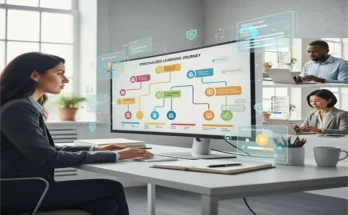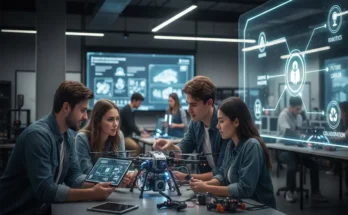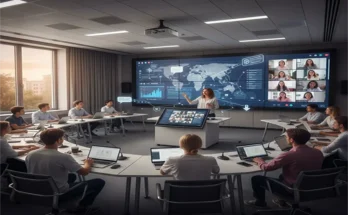Technology has become an integral part of education, transforming traditional teaching and learning methods and paving the way for innovative educational models. As we move further into the 21st century, it is clear that technology will continue to play a significant role in shaping the future of education. In this article, we will explore how technology will influence and shape future education models.
1. Personalized Learning:
One of the most significant ways technology will shape future education models is through personalized learning. With the help of data analytics and artificial intelligence, educators can track student progress, identify areas of strength and weakness, and deliver customized learning experiences tailored to each student’s needs. Personalized learning platforms can adapt to individual learning styles and paces, providing students with the support and resources they need to succeed.
2. Blended Learning:
Technology will continue to drive the adoption of blended learning models, which combine traditional classroom instruction with online learning opportunities. Blended learning offers flexibility and accessibility, allowing students to engage with course materials at their own pace and convenience. By incorporating multimedia resources, interactive exercises, and virtual simulations, educators can create dynamic and engaging learning experiences that cater to diverse learning styles.
3. Remote Learning:
The global shift towards remote learning in response to the COVID-19 pandemic has highlighted the potential of technology to enable virtual education delivery. Moving forward, remote learning will remain a key component of future education models, providing students with the flexibility to learn anytime, anywhere. Virtual classrooms, video conferencing tools, and online collaboration platforms will continue to facilitate interactive and engaging remote learning experiences, connecting students and educators across geographical boundaries.
4. Gamification and Interactive Learning:
Technology will also drive the integration of gamification and interactive learning tools into future education models. Gamified learning platforms leverage game mechanics, such as rewards, challenges, and levels, to motivate and engage students in the learning process. Interactive simulations, virtual reality experiences, and augmented reality applications enhance student engagement and deepen understanding of complex concepts, making learning more immersive and interactive.
5. Data-Driven Decision Making:
Technology enables educators to collect and analyze vast amounts of data on student performance, engagement, and behavior. By leveraging data analytics and learning management systems, educators can gain valuable insights into student progress, identify trends and patterns, and make data-driven decisions to improve teaching and learning outcomes. Data-driven decision making will shape future education models by informing curriculum design, instructional strategies, and student support initiatives.
6. Collaboration and Global Connectivity:
Technology facilitates collaboration and global connectivity, breaking down geographical barriers and connecting students and educators from around the world. Future education models will emphasize cross-cultural communication, collaborative projects, and global partnerships, enabling students to engage with diverse perspectives and cultures. Virtual exchange programs, online collaboration platforms, and social networking tools will foster global citizenship and intercultural understanding among students.
Technology will play a transformative role in shaping future education models by enabling personalized learning, blended learning, remote learning, gamification, data-driven decision making, and global connectivity. As educators and policymakers embrace the opportunities presented by technology, the future of education holds the promise of innovative, inclusive, and learner-centered approaches that empower students to thrive in a rapidly changing world.





